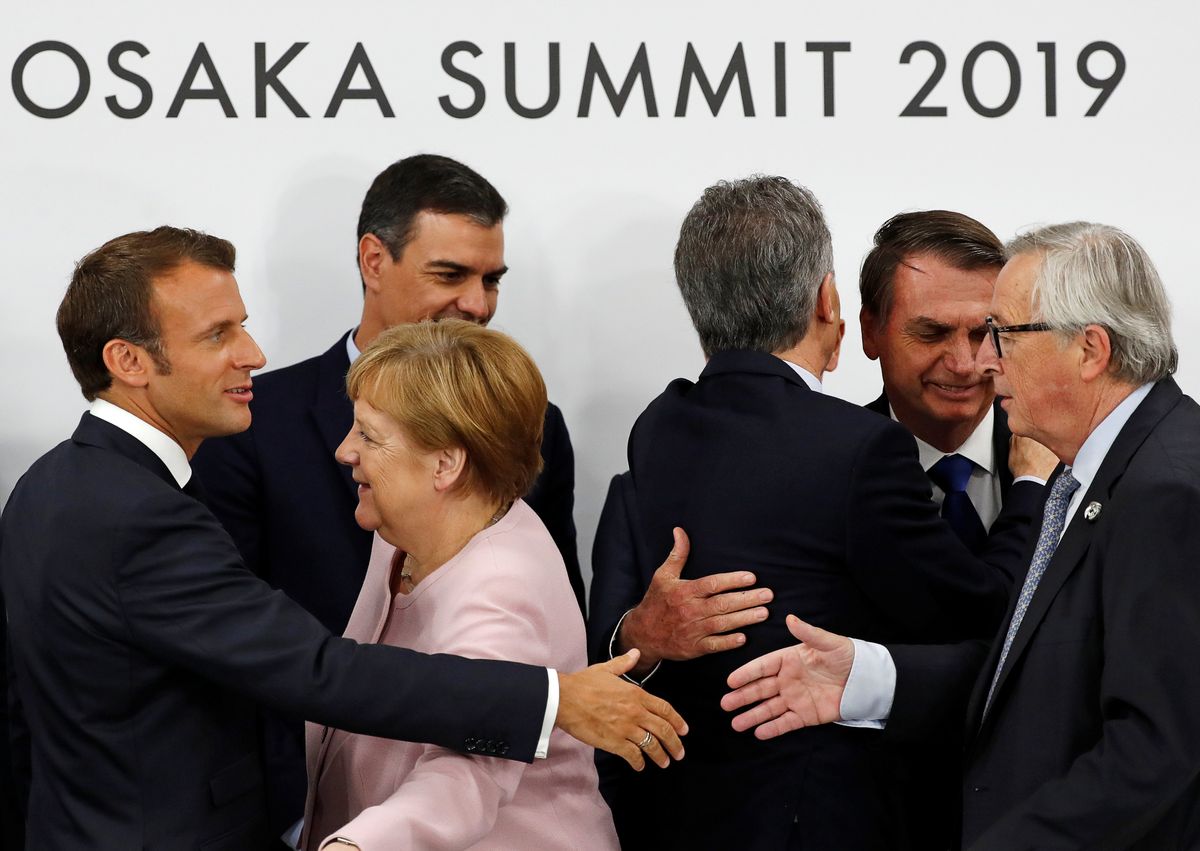One of the largest multilateral trade deals in history was signed just a few days ago, between the European Union and Mercosur, a South American trade bloc that includes Argentina, Brazil, Paraguay, and Uruguay. The deal covers countries with a total population of nearly 800 million people and it took 20 years to hammer out. It will open up Europe to more South American agricultural goods, while reducing their duties on European manufactured exports like cars, shoes, machinery, and, of course, wines and cheeses.
Three quick thoughts on this:
Trump wasn't even in the room, but he's in this story: One reason the long-deadlocked talks got crackling again was that Trump's more confrontational approach to US allies on trade had pushed the Europeans into seeking opportunities elsewhere. This is the largest trade deal the EU has ever struck, following smaller recent deals with Japan, Canada, Mexico, and Singapore.
Did you think all "populists" were protectionists? They aren't. Brazil's controversial far-right president Jair Bolsonaro is a major backer of the deal. He has made it his mission to reduce tariffs and other investment barriers in what is one of the world's most protectionist countries. He sees that as a way to spur growth and clear away a legacy of left-wing economic policies.
Could it go up in smoke? Yup. Farmers in Europe and manufacturers in Mercosur don't like it, and that matters because the deal still requires ratification by each member country (that means 28 in Europe alone.) But the biggest immediate challenge will come in Argentina. If Wall Street friendly President Mauricio Macri loses his fading re-election bid to the leftwing protectionist ticket of Alberto Fernandez and former president Cristina Fernandez de Kirchner later this year, Buenos Aires could throw a wrench into this thing fast.

















